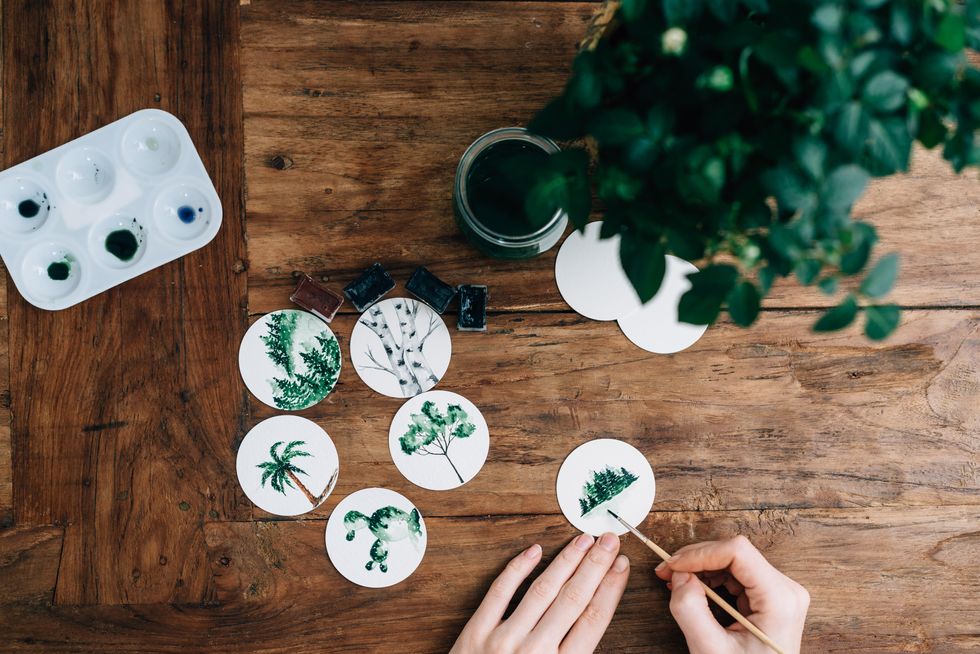Almost 84 percent of the US’s energy supply comes from nonrenewable fossil fuels and nuclear power. It’s no secret that our dependency on these resources is wreaking havoc on the environment, and consumers, companies, cities, and countries are stepping up to show they aren’t willing to sit back and accept the old way of doing things.
ENERGY STAR® appliances, LED lightbulbs, and efficient refrigerator settings are commonplace in houses and businesses. Home automation systems make it possible to set timers on heating and cooling systems, lighting, and outdoor irrigation to save energy and dollars.
Institutions are investing in a sustainable future by refusing to purchase stocks and bonds in the fossil fuel industry. And entire countries are taking steps to combat climate change.
So where do you stand when tackling the problem of our dwindling natural resources and our increasing pollution levels? If you haven’t even considered doing some of the following in your own life, you aren’t part of the solution—yet.
1. Reduce household waste.
Historically, plastic, glass, and aluminum containers were some of the most common items to make their way into landfills. Today, though, recycling such items is second nature, with curbside containers outside most residences and businesses.
You’ve seen the possibilities with recycling soda cans, but reusing or reducing the use of the following items can have a positive impact on the environment and your life:
Food scraps and yard waste make up 20 to 30 percent of landfill waste, yet most of these items can be composted into rich fertilizer for a garden. If you want to donate your scraps to a community composting center, invest in a container for organic materials. Some communities operate collection sites where you can drop off and recycle this waste, so check out what’s available in your area.
Paper products such as towels and tissues create unnecessary waste. Use dish rags to clean and handkerchiefs during allergy season to reduce garbage and gain cost savings.
Plastic grocery bags use too many valuable resources and are a detriment to the environment. Reusable cloth (or recycled plastic) grocery bags are cheap and sold everywhere. Use them instead.
Torn clothing, broken electronics, and discarded dishes are easy to discard. But you can easily shop at thrift stores instead of always buying new items, reducing the overall demand for new products that require more fossil fuels for creation. You can also donate used clothing and household items to these same locations to help others continue the cycle.
2. Opt for eco-friendly transportation.
Cities invest significant resources in safe, convenient public transportation because consolidating how residents get from place to place eases congestion and reduces emissions. They make these options appealing by offering deals on multiuse passes and creating high-occupancy vehicle (HOV) lanes for carpoolers.
Public transportation may not be as exciting as the thought of driving your own car or truck, but it does mean you won’t have to pay for purchasing and maintaining a vehicle, buying gas, or investing in insurance. It also allows you to relax instead of stressing out over construction and chaotic drivers. Oh, and there’s that environmental benefit, too, from not using fossil fuels to power your car.
If you do need your own vehicle, a hybrid or electric model may be an affordable and environmentally positive option. Many states offer financial incentives, including tax credits and registration fee reductions, to make purchasing these kinds of automobiles easier for more car shoppers.
Don’t know the first thing about choosing a hybrid vehicle? Check out Plug In America, a nonprofit, supporter-driven advocacy group focused on accelerating the shift to plug-in vehicles, reducing our petroleum dependence, improving air quality, and cutting down on greenhouse gas emissions.
3. Explore alternative power options
Wind and solar power are two of the most often-cited alternatives to fossil fuels, and they’re taking a foothold in the national power grid. For the first time, they accounted for 10% of the country's electricity generation in March 2017.
Though you might think solar panels are out of reach economically, there are numerous tax credits, incentive programs, and rebates available to mitigate the overall cost. Don’t forget the long-term cost savings as well. To find out more, look for available incentives in your state.
If you don’t own your home, some green energy providers incorporate renewable energy from solar, wind, and hydroelectric sources into the main power grid so you can still benefit from this energy. The company purchases renewable-energy credits (RECs) for consumers.
An REC verifies that someone on the grid is generating renewable energy, and once the renewable energy enters the main grid, it’s mixed in with energy from fossil fuels and other sources to power your home in a more environmentally friendly way.
Use the information here to educate yourself on environmental issues and make the changes you can. You owe it to yourself and to your planet.
















